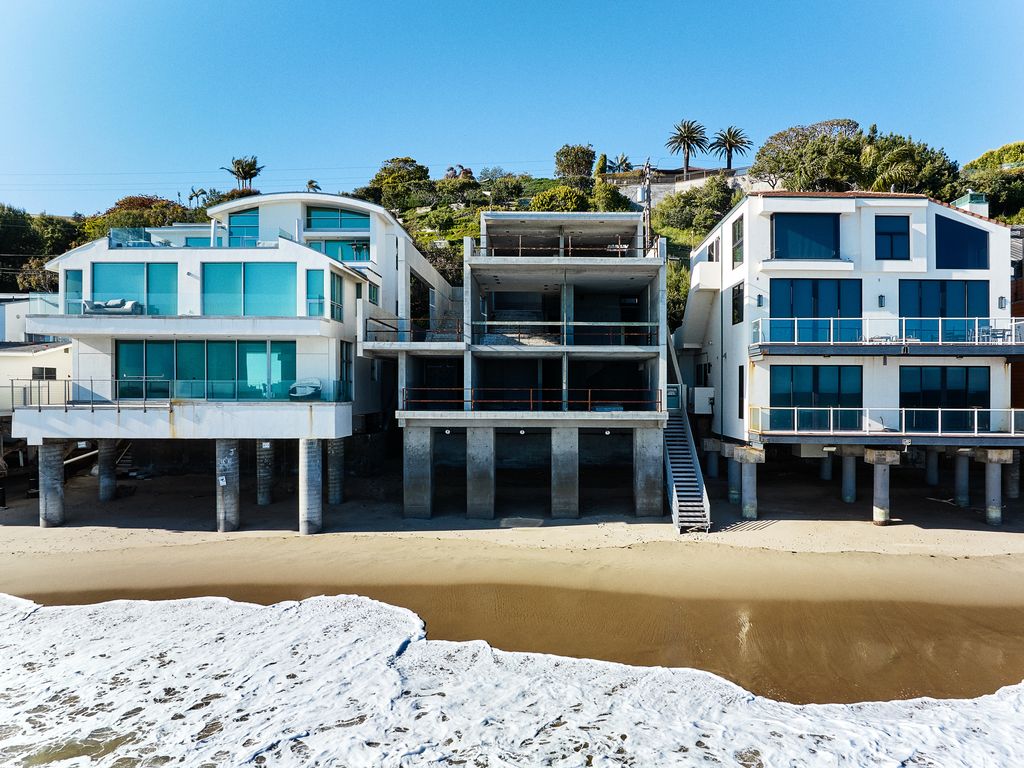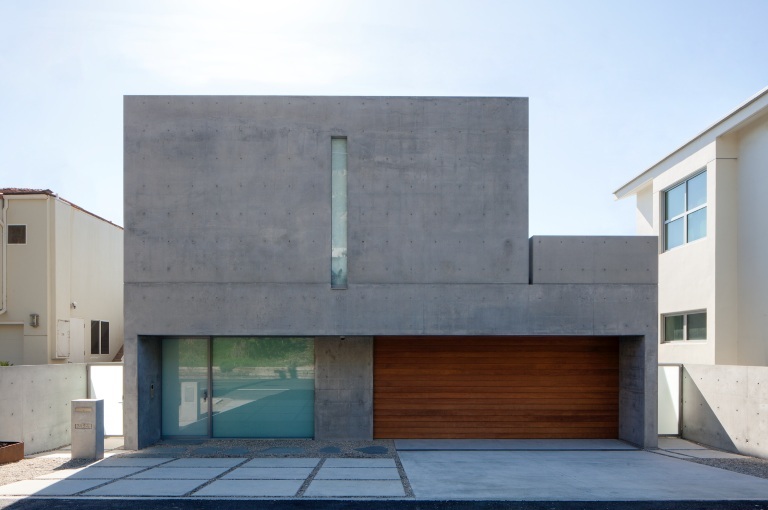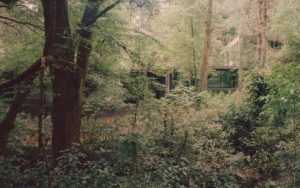Tadao Ando's Malibu residence stands as a profound architectural statement, distinctly characterized by his rigorous design principles tailored to its extraordinary coastal site. Its uniqueness derives from several key features:
Ando's First United States Residential Work
The sheer significance of this structure is amplified by its status as the celebrated Japanese architect's inaugural residential commission within the United States, making it a landmark in his global portfolio.
Signature Concrete Precision
True to Ando's aesthetic, the house employs exposed, board-formed concrete with exceptional craftsmanship. The texture, coolness, and monolithic quality of the concrete create a powerful, grounding presence contrasting with the ocean vista.

Radical Bisection: Land and Sea
A defining gesture is the way a long, monumental concrete wall slices through the site. This stark intervention separates the hillside entry sequence from the ocean-facing living spaces, creating a dramatic physical and visual threshold.
Meditative Approach Sequence
Visitors experience an orchestrated procession. Arrival occurs above and behind the ocean view. Movement entails navigating this imposing concrete wall via stairs and open-air bridges that cross over internal water elements, gradually revealing the panoramic seascape.
Framed Emptiness & Horizon Focus
The living space is conceived as a minimalist pavilion defined by vast glazing. Its architectural power lies in how it frames the primary element: the void over the Pacific Ocean. Attention is drawn intensely towards the distant horizon, emphasizing a sense of vastness and contemplation.
Integrated Water Elements
Water features are integral, not ornamental. Reflecting pools or channels are seamlessly incorporated along key pathways and courtyards, animating the journey through the house and creating moments of stillness mirroring the sky and architecture.
Controlled Natural Light
Ando masterfully channels and modulates light. Shifting sunlight interacts with the concrete surfaces and water features throughout the day, casting dynamic shadows and reflections that continually redefine the interior atmosphere and spatial experience.

Material Contrast
The tension between materials is crucial: the weighty permanence of concrete juxtaposed with the ephemeral lightness of glass and the fluidity of water. This dialogue emphasizes the building's relationship to the site's natural elements.
Ultimately, the Malibu house distills Ando's philosophy into a singular response: harnessing monumental form to heighten the sensation of nature's scale and beauty through precise geometry, material honesty, and the choreographed revelation of its breathtaking coastal setting.




